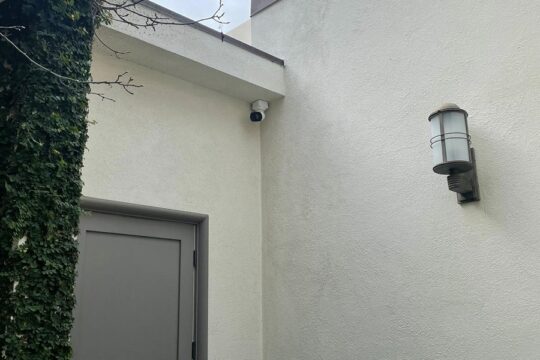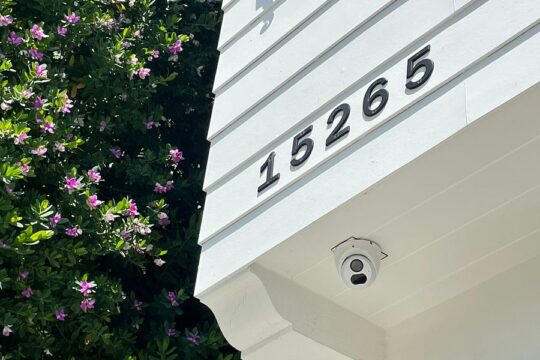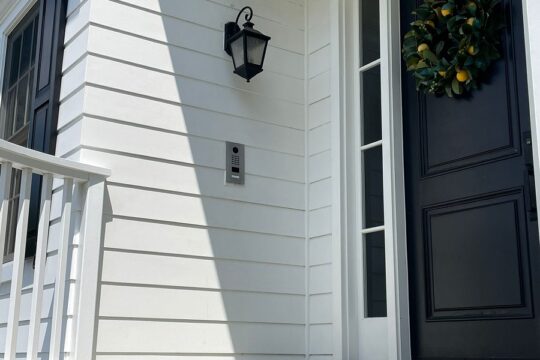Automatic lights for home are a convenient way to control the lighting in your home. They can be used to turn lights on and off at predetermined times, adjust brightness levels, or even respond to other sensors in the house such as motion detectors. Automatic lights can save energy and money by reducing the amount of time you have to manually switch lights on or off. They can also provide added security by keeping your home lit up when you’re away.
The importance of having lights installed in your home
Here are some benefits of having automatic lights installed in your home in Los Angeles:
1. Security: Automatic lights can be programmed to turn on and off at specific times, making it appear as if someone is still at home when you’re away, which can deter potential burglars.
2. Convenience: Automatic lights turn on and off based on motion detection or light sensors, so you don’t need to fumble for light switches or remember to turn off lights when you leave a room, making it easier and more convenient.
3. Energy Efficiency: Automatic lights can help save on electricity bills by only turning on when needed and ensuring that lights are not left on unnecessarily, which can also help reduce your carbon footprint.
4. Safety: Automatic lights can provide additional safety by turning on when you enter a dark room or area, making it easier to navigate your home and reducing the risk of accidents.
5. Aesthetics: Automatic lights can create a modern, sleek look in your home, especially if they are smart lights that can be controlled by voice or an app on your phone.
 Assess Your Needs – Assess how many lights you need in your home and which areas need them
Assess Your Needs – Assess how many lights you need in your home and which areas need them
It is important to evaluate the lighting needs of each room in your home. Consider factors such as the size of the room, its usage, and the amount of natural light it receives. For example, a kitchen may need brighter overhead lighting while a bedroom may benefit from softer, more ambient lighting. Additionally, consider adding accent lighting to highlight certain features of your home, such as artwork or architectural details. Ultimately, the number and type of lights you need will depend on your personal preferences and lighting requirements. It is always a good idea to consult a professional electrician for guidance on lighting design and installation.
Identify your budget and decide whether you want to install the lights yourself or hire a professional
Before installing lights, you should first identify your budget. Figure out how much money you can spend on the lighting installation. Your budget will guide you in choosing the type of lights, the number of lights, and the accessories required for installing the lights. Once you have identified your budget, you should decide whether you want to install the lights yourself or hire a professional. If you have experience in this area or you are confident in your own ability to work with electricity and wiring, then you may want to consider installing the lights yourself to save money. But if you are not comfortable working with electric wiring or you lack the necessary skills and expertise, it is best to hire a professional electrician to do the installation for you. Working with electricity can be dangerous, and it is always better to be safe than sorry.
Different types of bulbs available for automatic lights for home
1. Incandescent bulbs: These bulbs are the traditional ones that generate light by heating a wire filament. They are cheap, but not very energy-efficient.
2. LED bulbs: LEDs (light-emitting diodes) are highly energy-efficient and last for many years. They are more expensive than incandescent bulbs, but the energy savings over time make up for the initial cost.
3. Halogen bulbs: These bulbs are a type of incandescent bulb that use a halogen gas to increase their efficiency. They produce a bright, white light and are commonly used in outdoor lighting fixtures.
4. CFL bulbs: CFLs (compact fluorescent lamps) are a type of energy-efficient bulb that use a small amount of mercury vapor to generate light. They are more efficient than incandescent bulbs, but less efficient than LEDs.
5. HPS bulbs: High-pressure sodium (HPS) bulbs are commonly used in streetlights and outdoor security lighting. They produce a bright, yellow light and are highly energy-efficient.
6. Metal halide bulbs: These bulbs are similar to HPS bulbs, but produce a brighter, whiter light. They are often used in commercial and industrial settings.
7. Smart bulbs: These bulbs can be controlled remotely using a smartphone app or home automation system. They are typically LEDs and offer a wide range of customization and automation options.
Tips To Hire The Right Contractor
1. Look for experience – hire a contractor who has experience in installing automatic lights for home. Ask for references, and check their previous work.
2. Check for licensing and insurance – make sure that the contractor is licensed and insured. This ensures that they have met the requirements set by your state for professional installation work.
3. Get multiple estimates – get estimates from at least two or three contractors. This way, you can compare the prices and choose the one that suits your budget.
4. Understand the warranty – understand the warranty that comes with the installation. Make sure that you know what is covered and what is not.
5. Communication is key – make sure that you hire a contractor who is easy to communicate with. They should listen to your requirements and should be able to explain the installation process in detail.
6. Consider their availability – make sure that the contractor is available to start the installation work when you need it. You don’t want to wait for weeks or months for the installation to start.
7. Check reviews and references – read reviews and check references of the contractor. This will help you understand their work quality and customer service.
8. Understand the installation process – make sure that you know the installation process and how long it will take. This way, you can plan accordingly.
9. Discuss the payment schedule – discuss the payment schedule with the contractor. Make sure that you are comfortable with the payment terms and schedule.
 Why Choose Onboard IT Tech For Installing Automatic Lights For Home?
Why Choose Onboard IT Tech For Installing Automatic Lights For Home?
Here are some reasons why people might choose us for installing automatic lights:
– Experience: Our team has years of experience in installing and maintaining automatic lights for various properties, including residential and commercial.
– Quality: We use high-quality materials and products from trusted brands to ensure that our installations are long-lasting and efficient.
– Customized Solutions: We understand that every property is unique, and we offer customized solutions based on your specific lighting requirements and preferences.
– Time-efficient: Our team works efficiently and quickly to minimize disruption to your daily routine during the installation process.
– Professionalism: We pride ourselves on our professionalism, from our initial consultation to the final installation and follow-up maintenance.
– Competitive pricing: Our pricing is competitive, and we offer transparent quotes for our services. Overall, choosing us for installing automatic lights means that you can expect a reliable team, high-quality products and materials, customized solutions, and professional services at competitive prices.
Choose the Right Sensor For Automatic Lights For Home
When choosing a sensor for automatic lights, there are several factors to consider. Here are some things to keep in mind:
1. Motion Detection Range: This refers to how far away the sensor can detect motion. You want to select a sensor that covers the area you want to light up.
2. Detection Pattern: Some sensors have a narrow detection beam, while others have a wider pattern. Consider the layout of the area you want to light and choose a sensor with an appropriate pattern.
3. Light Sensitivity: Some sensors can be adjusted to only turn on when it is dark outside. This can save energy and prevent unnecessary lighting.
4. Sensitivity Adjustment: Some sensors have adjustable sensitivity, allowing you to fine-tune their performance.
5. Weather Resistance: If the sensor is going to be installed outdoors, it should be weather-resistant or housed in a protective enclosure.
6. Power Source: Some sensors require AC power, while others can run on batteries. Consider what will be most practical for your installation.
7. Compatibility: Make sure the sensor is compatible with the type of light fixture you want to control. By considering these factors, you can choose the right sensor for your needs and achieve effective and energy-efficient automatic lighting.
Read More About-
- Protect Your Business with a Security Alarm System Los Angeles
- Get Video Installers Los Angeles- The Best 1
- Automation home system Los Angeles-11 Best Tips
- Lighting Installation Los Angeles- 10 Essential Tips
- Get Home Theater System Installers In Los Angeles
- Best Home Theater Company In Los Angeles
- Smart Home Outdoor Lighting In Pacific Palisades- Affordable 1


 Assess Your Needs – Assess how many lights you need in your home and which areas need them
Assess Your Needs – Assess how many lights you need in your home and which areas need them Why Choose Onboard IT Tech For Installing Automatic Lights For Home?
Why Choose Onboard IT Tech For Installing Automatic Lights For Home?

